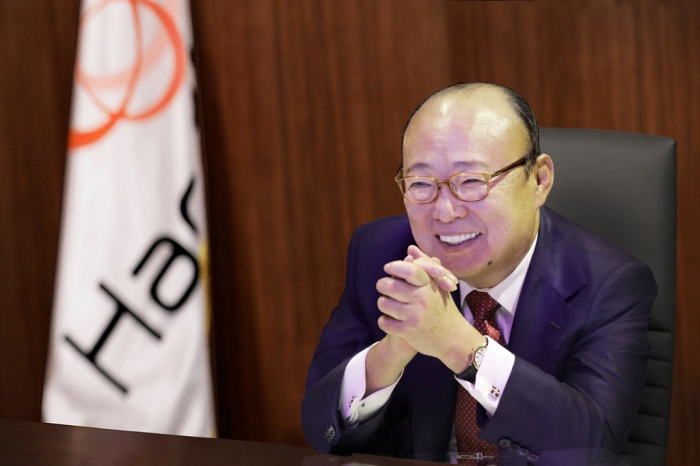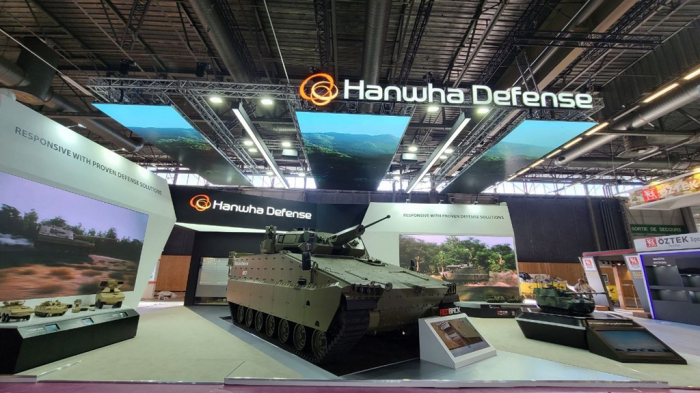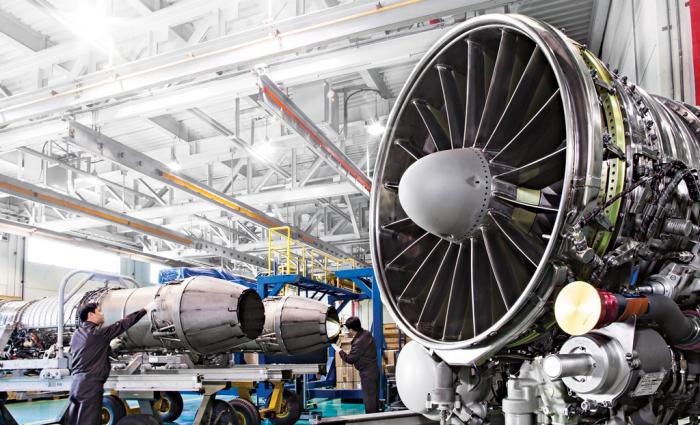Mergers & Acquisitions
Hanwha Aerospace, Hanwha Defense likely to merge
Organic growth via internal integration of subsidiaries is preferred as a shaky economic outlook discourages M&As
By Jul 25, 2022 (Gmt+09:00)
5
Min read
Most Read
MBK’s Korea Zinc takeover attempt to spur search for white knights


Korea Zinc, MBK face proxy war for zinc smelter


Korea Zinc shares skyrocket after buybacks in tender offer


Lotte to liquidate rubber JV in Malaysia, sell overseas assets for $1 bn


Samsung to unveil 400-layer bonding vertical NAND for AI servers by 2026



Hanwha, the South Korean chemicals-to-financial conglomerate, has been a key player in the M&A market with a series of conspicuous acquisitions in the past few years in the hydrogen, solar power and aerospace sectors.
Recent economic headwinds such as higher interest rates, soaring inflation and a weaker Korean currency, however, are forcing Hanwha Group to seek to integrate its subsidiaries among related businesses.
The group is seeking to merge Hanwha Aerospace Co. with Hanwha Defense Co. to promote synergy and cut costs, according to people familiar with the matter.
The conglomerate is also considering combining Hanwha Corp. with its wholly owned subsidiary Hanwha Engineering & Construction Co.
“Economic uncertainty is growing. We’ll see an increasing number of business restructuring cases through mergers of related subsidiaries in large Korean companies rather than the acquiring of outside companies. Hanwha is one of them,” said an investment banking source.

In response, Hanwha said in a regulatory filing that it is considering various options, including a merger with a defense-related subsidiary, to boost corporate value, but no decision has been made.
Hanwha Aerospace, an aircraft engine parts maker, has been losing money since 2017. It takes years to develop aircraft engines designed specifically for its clients which include Rolls-Royce.
Despite posting losses for years, the company has spent heavily to buy companies for non-organic growth, including a 109 billion won ($99 million) deal last year to buy a 30% stake in Korea's Satrec Initiative Co., a Kosdaq-listed satellite maker.
Higher interest rates arising from global monetary tightening are boosting borrowing costs for Hanwha Aerospace, industry watchers said.
In contrast, Hanwha Defense has been the main breadwinner for the conglomerate, and the integration of the two defense-related units will create synergy and cut borrowing costs for its financially frail affiliate, Hanwha Aerospace, sources said.
Hanwha Defense and two other Korean weapons makers – Hyundai Rotem Co. and Korea Aerospace Industries Ltd. – will likely clinch 10 trillion-won ($7.7 billion) export deals with Poland later this month, defense industry sources said last week.

INTERNAL INTEGRATION BECOMES A NEW TREND
Challenging economic conditions are prompting other large Korean companies to pursue organic growth through integration of related subsidiaries instead of seeking a buyout of rival companies.
The investment banking industry source said about 10 internal mergers among Korean companies such as POSCO, Lotte and KT have either been completed or are in progress since the start of this year.
POSCO International Co. is in the middle of absorbing its affiliate POSCO Energy Co. for vertical integration of the group’s liquefied natural gas (LNG) business.
The two companies plan to hold their respective board meetings next month, and get the merger plan approved at their shareholders’ meetings in November.
KT Corp. is mulling a merger of its two media-related businesses – SkyTV, which was recently renamed ENA, and Media Genie Co., a streaming video service provider.
Earlier this month, Lotte Group merged Lotte Confectionery Co. with Lotte Food Co. to compete with its local rival CJ CheilJedang Corp., while Ottogi Corp. has integrated its instant noodle making unit with a logistics services affiliate.

M&A MARKET COOLS
Integration among affiliates is also used to streamline corporate governance structure.
Last November, SK Inc., the investment and holding company of SK Group, absorbed SK Materials Co., the group’s industrial gas manufacturing affiliate, as part of the group’s broader restructuring aimed at strengthening Group Chairman Chey Tae-won’s management control over affiliates.
Meanwhile, M&A deals involving Korean firms are dwindling as potential buyers are reluctant to pay high for acquisition targets as their corporate value falls amid the weak stock market overshadowed by a cloudy economic outlook.
According to a survey by Market Insight, the capital market outlet of The Korea Economic Daily, buyout deals including management transfers totaled 18.61 trillion won in the first half of this year, down 34% from the year-earlier period.
The only big deal worth more than 1 trillion won in the first half was SK Ecoplant Co.’s acquisition in February of Singapore’s electronic waste (e-waste) disposal and recycling company TES Envirocorp Pte. for $1 billion.
The scarcity of big buyout deals so far this year contrasts with the abundance of such deals in 2021.
Last year’s big deals included E-Mart Inc.’s purchase of eBay Korea for 3.44 trillion won in June, HYBE Co.'s 1.12 trillion won takeover of US media company Ithaca Holdings, and Hyundai Heavy Industries Holdings Co.’s purchase of Doosan Infracore Co. for 850 billion won.
“In the M&A market, sellers are putting their companies up for sale with a relatively high price tag. But buyers won’t buy into that, citing economic uncertainties. The M&A market will likely remain in the doldrums at least until the end of this year,” said an investment banking official.
In a recent auction to sell a controlling stake in Iljin Materials Co., a leading Korean battery materials maker, two strong contenders – LG Chem Ltd. and Samsung SDI Co. – withdrew their interest at an early stage in the sale process as the companies preferred to hoard cash to prepare for a possible economic recession, industry officials said.
Write to Jun-Ho Cha at chacha@hankyung.com
In-Soo Nam edited this article.
More to Read
-
 Mergers & AcquisitionsPOSCO Int'l tipped to merge with affiliated LNG terminal firm
Mergers & AcquisitionsPOSCO Int'l tipped to merge with affiliated LNG terminal firmJul 20, 2022 (Gmt+09:00)
3 Min read -
 Mergers & AcquisitionsLotte Chemical, Bain Capital among bidders for Korea’s Iljin Materials
Mergers & AcquisitionsLotte Chemical, Bain Capital among bidders for Korea’s Iljin MaterialsJul 01, 2022 (Gmt+09:00)
3 Min read -

-
 Corporate investmentHanwha to boost defense, aerospace biz with $2.1 bn spending
Corporate investmentHanwha to boost defense, aerospace biz with $2.1 bn spendingMay 25, 2022 (Gmt+09:00)
2 Min read -
 Aerospace & DefenseHanwha, Poongsan, LIG Nex1 clinch $989 mn Saudi defense deals
Aerospace & DefenseHanwha, Poongsan, LIG Nex1 clinch $989 mn Saudi defense dealsMar 10, 2022 (Gmt+09:00)
2 Min read
Comment 0
LOG IN


